Not sure what material is best for your application?
Contact an Expert
Search By Material
Search By Application
Category Archives: High Temperature Resistance
Q: I’m looking to purchase some ¼-20 bolts/nuts/washers that will be suitable to fasten metal plate together at 1,300C. The fasteners need to last at least 4 minutes at this temperature but preferably longer. The load on the bolts will be very low. A: I think there are a couple … Continue reading
Posted in Application, FAQs, High Temperature Resistance Tagged Fast Delivery Ceramic Screws, Fast Delivery Inconel, Fast delivery Inconel bolts, Fast delivery Inconel screws, Fast lead time ceramic screws, Fast lead time high temperature fasteners, Fast lead time inconel bolts, Fast lead time inconel screws, Remove term: Fast lead time high temperature fasteners Fast lead time high temperature bolts, Remove term: Fast lead time high temperature fasteners Fast lead time high temperature screws Leave a comment
Q: We are looking to find an electrically non-conductive bolt that would also work at temperatures up to 500 F max. They will be used for an electrically live part isolation kit. Anything that will fit the bill? A: Without any understanding of your strength requirements, and focusing solely on the … Continue reading
Posted in Application, Engineered Polymer Fasteners, FAQs, High Temperature Resistance, Material, Non-Conductive Tagged PEEK bolts for high temperature non-conductivity, PEEK for high temperature non-conductivity, PEEK glass reinforced fasteners, PEEK glass reinforced nuts, PEEK glass reinforced screws, PEEK glass reinforced studs, PEEK glass-reinforced bolts, PEEK glass-reinforced fasteners for non-conductive, PEEK glass-reinforced screws for non-conductive, PEEK glass-reinforced studs for non-conductive, PEEK glass-reinforced studsfor non-conductive, PEEK screws for high temperature non-conductivity, PEEK studs for high temperature non-conductivity Leave a comment
Q: Hi, I’m search to get a 1/4″-20 x 3ft long alumina ceramic rod. Is this something you can make? A: For Extreme Bolt & Fastener, 3″ long is the max length we can produce a ceramic bolt, rod or other fastener. As you may know ceramics are brittle, but breakage … Continue reading
Posted in Advanced Ceramic Fasteners, Application, FAQs, High Strength, High Temperature Resistance, Technical Questions Tagged how long can you make a ceramic bolt, How long can you make a ceramic fastener, How long can you make a ceramic screw, How long can you make a zirconia fastener, how long can you make a zirconia screw, How long can you make an alumina bolt, How long can you make an alumina fastener, How long can you make an alumina screw, Remove term: how long can you make a zirconia bol how long can you make a zirconia bolt, what is the max length of a alumina screw, what is the max length of a ceramic bolt, what is the max length of a ceramic rod, What is the max length of a ceramic screw, what is the max length of a zirconia bolt, what is the max length of a zirconia rod, what is the max length of a zirconia screw, what is the max length of an alumina bolt, what is the max length of an alumina rod Leave a comment
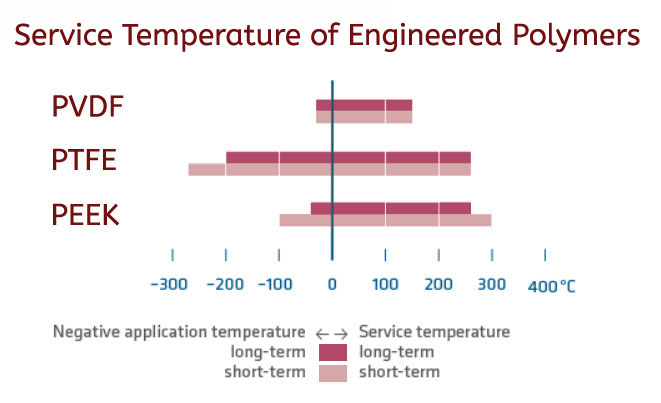 Polymers at Cryogenic Temperatures Most often people want to know how hot a material can be used up to in an application, however for cryogenic applications, in media like liquified gasses (nitrogen, oxygen, carbon dioxide, LNG, etc.), we need to understand how materials perform at very cold temperatures. Polymer fasteners … Continue reading
Polymers at Cryogenic Temperatures Most often people want to know how hot a material can be used up to in an application, however for cryogenic applications, in media like liquified gasses (nitrogen, oxygen, carbon dioxide, LNG, etc.), we need to understand how materials perform at very cold temperatures. Polymer fasteners … Continue reading
Posted in Application, Blog, Engineered Polymer Fasteners, High Strength, High Temperature Resistance, Material Tagged peek bolts for cryogenic, PEEK bolts for sub zero temperatures, Peek for cryogenics, Peek for sub-zero temperatures, Peek for sub-zero temps, PEEK screws for sub zero temperatures, polymer bolts for cryogenic, polymer bolts for sub zero temps, polymer bolts for subzero temps, polymer fasteners for cryogenic, polymer fasteners for sub zero temps, polymer fasteners for subzero temps, polymer screws for cryogenic, polymer screws for sub zero temps, polymer screws for subzero temps, Polymers for cryogenics, polymers for sub-zero temperatures, polymers for sub-zero temps, polymers for subzero temperatures, polymers for subzero temps, ptfe bolts for cryogenic, PTFE bolts for sub zero temperatures, PTFE for cryogenic, PTFE for sub-zero temps, PTFE for subzero temperatures, PTFE screws for sub zero temperatures, PVDF bolts for cryogenic, PVDF bolts for sub zero temperatures, PVDF for cryogenics, PVDF for sub-zero temps, PVDF for subzero temperatures, PVDF screws for sub zero temperatures Leave a comment
Q: I’m looking for polymer that can withstand around 400F for a high temperature sterilization process in a pharmaceutical application. In addition, I also need the polymer to meet FDA and USDA purity standards. Is this possible with Torlon screws. A: Torlon screws are a good high temperature polymer that … Continue reading
Posted in Application, Engineered Polymer Fasteners, FAQs, High Temperature Resistance, Material, Technical Questions, Ultra Purity Tagged PEEK bolts for high purity, PEEK fasteners for high purity, PEEK FDA approved bolts, PEEK FDA approved fasteners, PEEK FDA approved screws, peek high purity bolts, peek high purity fasteners, PEEK high purity screws, PEEK screws for high purity, PEEK USDA approved bolts, PEEK USDA approved fasteners, PEEK USDA approved screws, Torlon bolts for high temperatures, Torlon screws for high temperatures Leave a comment
Q: I’m looking for a polymer fastener that can withstand ultraviolet radiation, but is also FDA approved as this is for a pharmaceutical application. Temperatures are around 100C. A: For this application, a good choice would be PVDF fasteners. PVDF screws are both FDA approved and are ideal for handling … Continue reading
Posted in Application, Corrosion Resistance, Engineered Polymer Fasteners, FAQs, High Temperature Resistance, Material, Technical Questions, Ultra Purity Tagged PVDF bolt for ultraviolet radiation, PVDF bolts for ultraviolet radiation, PVDF screw for ultraviolet radiation, PVDF screws for ultraviolet radiation Leave a comment
Q: I have a food processing application that requires a polymer screw that can get hot – about 300F. My concern is outgassing in the heat that can contaminate the food chemicals. Is there something that will not outgas that can work for me? A: For your application I would … Continue reading
Posted in Application, Engineered Polymer Fasteners, FAQs, High Temperature Resistance, Technical Questions, Ultra Purity Tagged Bolt approved by FDA, Bolt approved by USDA, Bolts approved by FDA, Bolts approved by USDA, PEEK bolt 3A Dairy approved, PEEK bolt FDA approved, PEEK bolt for food applications, PEEK bolt USDA approved, PEEK bolts 3A Dairy approved, PEEK bolts FDA approved, PEEK bolts for food applications, PEEK bolts USDA approved, PEEK screw 3A Dairy approved, PEEK screw FDA approved, PEEK screw for food applications, PEEK screw USDA approved, PEEK screws 3A Dairy approved, PEEK Screws FDA approved, PEEK screws for food applications, PEEK screws USDA approved, Screw approved by FDA, Screw approved by USDA, Screws approved by FDA Leave a comment
Q: I’m looking for a high temperature, strong fastener. I noticed that Hastelloy C276 bolts can be used to 1500F where A286 screws can only be used to 1300F. Does that make Hastelloy a better choice? A: Typically not. Hastelloy screws are most often used for high temperature corrosion. For … Continue reading
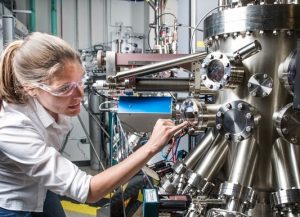 Cryogenic service can be harsh on any equipment, but gaskets have their own specific challenges. Due to the expansion and contraction when temperatures fluctuate between room and cryogenic, gasket sealing mechanisms can be compromised. This newsletter provides answers to issues facing gaskets in cryogenic service. How do cryogenic temps affect … Continue reading
Cryogenic service can be harsh on any equipment, but gaskets have their own specific challenges. Due to the expansion and contraction when temperatures fluctuate between room and cryogenic, gasket sealing mechanisms can be compromised. This newsletter provides answers to issues facing gaskets in cryogenic service. How do cryogenic temps affect … Continue reading
Q: I need a polymer flange that for a sterilization process. It would need to withstand temps of about 300F. Any suggestions? A: For this situation I would suggest a PEEK flange. PEEK is strong to temps of about 500F and performs excellently in both high temperature steam and water … Continue reading
Posted in Application, Engineered Polymer Fasteners, FAQs, High Temperature Resistance, Material, Technical Questions Tagged PEEK flange for high temperature, PEEK Flange for high temperature sterilization, PEEK flange for radiation sterilization, PEEK Flange for steam sterilization, PEEK flange for sterilization Process, PEEK flanges for 300F Leave a comment
Q: I need a polymer fastener that offers the best corrosion resistance at high temperatures. I’m using a low percentage of H2SO4 but temps can get up to 300F. Any ideas? A: The best polymer fastener for high temperature corrosion resistance is PTFE screws. PTFE fasteners offer excellent corrosion resistance … Continue reading
Posted in Application, Corrosion Resistance, Engineered Polymer Fasteners, FAQs, High Temperature Resistance, Material, Technical Questions Tagged PTFE bolts for H2SO4 corrosion, PTFE bolts for high temperature corrosion, PTFE bolts for sulfuric acid corrosion, PTFE fasteners for H2SO4 corrosion, PTFE fasteners for high temperature corrosion, PTFE fasteners for sulfuric acid corrosion, PTFE screws for H2SO4 corrosion, PTFE screws for high temperature corrosion, PTFE screws for sulfuric acid corrosion Leave a comment
Q: I need a polymer fastener that can withstand high temp pharma sterilization processes? There may also be chemical contaminants in the process. A: Depending on the temperatures you are looking at, the three options to consider would be PEEK, PVDF or PTFE fasteners. PEEK fasteners can be used to … Continue reading
Posted in Application, Corrosion Resistance, Engineered Polymer Fasteners, FAQs, High Temperature Resistance, Material, Technical Questions, Ultra Purity Tagged PEEK bolts for sterilization processes, PEEK fasteners for sterilization processes, PEEK screws for sterilization processes, PTFE bolts for sterilization processes, PTFE fasteners for sterilization processes, PTFE screws for sterilization processes, PVDF bolts for sterilization processes, PVDF fasteners for sterilization processes, PVDF screws for sterilization processes Leave a comment
Q: I have a high temperature sterilization process and am using PVDF screws. They seem to be weakening under the temperatures that approach 300F. Any suggestions? A: PEEK fasteners may be a good fit for your application. PEEK screws stay strong and retain their mechanical properties to about 500F. They … Continue reading
Posted in Application, Engineered Polymer Fasteners, FAQs, High Temperature Resistance, Material, Technical Questions Tagged PEEK bolts for 300F, PEEK bolts for high temperature sterilization, PEEK bolts for sterilization, Peek fasteners for 300F, PEEK fasteners for high temperature sterilization, PEEK fasteners for sterilization, PEEK screws for 300F, PEEK screws for high temperature sterilization, PEEK screws for sterilization Leave a comment
Q: What would be the highest strength polymer fastener I can use to 400F? A: For this application, probably the best option for you would be PEEK fasteners. PEEK screws are usable to 500F and are available in three levels of strength. Unfilled natural PEEK fasteners offer 16,000 psi tensile … Continue reading
Posted in Application, Engineered Polymer Fasteners, FAQs, High Strength, High Temperature Resistance, Material, Technical Questions Tagged High STrength PEEK bolts, High strength PEEK Fasteners, High strength PEEK screws, PEEK bolts for strength, PEEK fasteners for strength, PEEK screws for strength Leave a comment
Q: What is the max temperature I could expose PEEK screws to HCl? A: This depends on the concentration of the HCl but if you were at about 15%, the PEEK fasteners can be exposed to about 100C of hydrochloric acid solution. See this chart https://www.extreme-bolt.com/peek-fasteners-flanges.html#Chemical. That is the max … Continue reading
Posted in Application, Corrosion Resistance, Engineered Polymer Fasteners, FAQs, High Strength, High Temperature Resistance, Technical Questions Tagged Exposing PEEK bolts to HCL, Exposing peek bolts to hydrochloric acid, Exposing Peek fasteners to HCl, Exposing PEEK fasteners to Hydrochloric acid, Exposing PEEK Screws to HCl, Exposing PEEK screws to hydrochloric acid, max temperature I could expose PEEK bolts to HCl, max temperature I could expose PEEK fasteners to HCl, max temperature I could expose PEEK fasteners to Hydrochloric acid, max temperature I could expose PEEK screws to HCl, max temperature I could expose PEEK screws to hydrochloric acid Leave a comment
Q: I need a fastener that can withstand frequent sterilization processes at temps to around 400F. I would prefer a polymer if possible. Also the process is pharma related, so the screws would need to be non leaching and may be exposed to low concentrations of chemicals. Any ideas? A: … Continue reading
Posted in Application, Engineered Polymer Fasteners, FAQs, High Temperature Resistance, Material, Technical Questions, Ultra Purity Tagged FDA approved bolts, FDA approved fasteners, FDA approved peek bolts, FDA approved PEEK fasteners, FDA approved PEEK screws, FDA approved screws, Hydrolysis resistant bolts, Hydrolysis resistant fasteners, Hydrolysis resistant PEEK bolts, Hydrolysis resistant PEEK fasteners, Hydrolysis resistant PEEK screws, Hydrolysis resistant screws, PEEK bolts FDA approved, PEEK bolts for Pharmaceutical purity, PEEK bolts for purity, PEEK bolts for sterilization processes, PEEK fasteners FDA approved, PEEK fasteners for Pharmaceutical purity, PEEK fasteners for purity, PEEK fasteners for sterilization processes, PEEK Screws FDA approved, PEEK screws for Pharmaceutical purity, PEEK screws for purity, PEEK screws for sterilization processes Leave a comment
Q: I am looking for recommendations for fasteners capable of operating under load at 2000C, in a mild vacuum environment. The material can be conductive or insulating just along as it does not react with carbon. A: For temperatures as high as 2000C, Zirconia ceramic fasteners would be your only … Continue reading
Posted in Advanced Ceramic Fasteners, Application, Corrosion Resistance, FAQs, High Temperature Resistance, Technical Questions Tagged zirconia bolts for high temperature, zirconia ceramic bolts for 2000C application, zirconia ceramic bolts for high temperature, zirconia ceramic fasteners for 2000C application, zirconia ceramic fasteners for high temperature, zirconia ceramic screws for 2000C application, zirconia ceramic screws for high temperature, zirconia fasteners for 2000C application, zirconia fasteners for high temperature, zirconia screws for 2000C application, zirconia screws for high temperature Leave a comment
Q: I have an application with high temperature exhaust that requires a high strength bolt for oxidation resistance. Temps are pretty consistent around 1300F. Would Inconel 718 bolts be a good choice? A: Inconel 718 would definitely be one good option. Inconel 718 bolts offer 210ksi tensile strength and are … Continue reading
Posted in Application, FAQs, High Strength, High Temperature Resistance, Technical Questions Tagged A286 bolts for high temperatures, A286 fasteners for high temperatures, A286 screws for high temperatures, Alloy 718 bolts for high temperatures, Alloy 718 fasteners for high temperatures, Alloy 718 screws for high temperatures, Inconel 718 bolts for high temperatures, Inconel 718 fasteners for high temperatures, Inconel 718 screws for high temperatures, Nimonic 80A bolts for high temperatures, Nimonic 80A fasteners for high temperatures, Nimonic 80A screws for high temperatures, Nimonic bolts for extreme temperatures, Nimonic bolts for high temperatures, Nimonic fasteners for extreme temperatures, Nimonic fasteners for high temperatures, Nimonic screws for extreme temperatures, Nimonic screws for high temperatures Leave a comment
A. We need a screw that is usable at 200C in air only, so no chemical resistance needed. I like the high strength of the Carbon Fiber PEKK or PEEK Extreme. Will these work?A Q: Would recommend using either Glass filled PEEK or Vespel. Vespel screws are made from the … Continue reading
Posted in Application, Engineered Polymer Fasteners, FAQs, High Temperature Resistance, Technical Questions Tagged glass filled peek for high temperatures, glass filled peek screws for high temperature strength, glass filled peek screws for strength, Polyimide fasteners for high temperature, Polyimide screws for high temperature, Vespel fasteners for high temperature, vespel screws for high temperature Leave a comment
 PEEK, PVDF and PTFE all offer lightweight, electrical & thermal insulation and great corrosion resistance. But when it comes to strength, temperature, purity and corrosion, each has its niche. The newsletter points out which is best to use in different conditions. TEMPERATURE PEEK and PTFE screws offer excellent high temperature … Continue reading
PEEK, PVDF and PTFE all offer lightweight, electrical & thermal insulation and great corrosion resistance. But when it comes to strength, temperature, purity and corrosion, each has its niche. The newsletter points out which is best to use in different conditions. TEMPERATURE PEEK and PTFE screws offer excellent high temperature … Continue reading
Posted in Application, Blog, Corrosion Resistance, Engineered Polymer Fasteners, High Strength, High Temperature Resistance, Lightweight, Material Tagged corrosion resistant polymer bolts, corrosion resistant polymer screws, high strength polymer bolts, High strength polymer fasteners, high strength polymer screws, high temperature polymer bolts, high temperature polymer screws, high temperature resistant polymer fasteners, high temperature resistant polymer scres, polymer bolts for corrosion, polymer bolts for high temperature, polymer fasteners for corrosion, polymer screws for corrosion, Polymer screws for high temperature Leave a comment
Q: I’m looking for a polymer washer that can be used as a dielectric break between aluminum and titanium. It will also be exposed to salt water. Is torlon a good choice? A: Torlon washers will work in this situation, but there are probably more cost efficient solution for this … Continue reading
Posted in Corrosion Resistance, Engineered Polymer Fasteners, FAQs, High Temperature Resistance, Technical Questions Tagged PEEK fasteners for salt water resistance, PEEK fastners for dielectric strength, PEEK for salt water resistance, PEEK screws for dielectric strength, PEEK screws for salt water resistance, PEEK washers for dielectric strength, PEEK washers for salt water resistance, Torlon bolts for dielectric strength, Torlon fasteners for high temperature appliations, Torlon fastners for dielectric strength, Torlon screws for dielectric strength, Torlon screws for high temperature appliations, Torlon washers for dielectric strength, Torlon washers for high temperature appliations Leave a comment
Q: I have a laboratory applications that uses about 25% sulfuric acid at room temperature to 100F. I’d like to use a polymer rather than a metal if possible. I tried PTFE screws because I thought they were corrosion resistant, but they need to be replaced often because they can’t … Continue reading
Posted in Corrosion Resistance, Engineered Polymer Fasteners, FAQs, High Temperature Resistance, Technical Questions Tagged PTFE bolts for corrosion resistance, PTFE bolts for sulfuric acid, PTFE fasteners for sulfuric acid, PTFE screws for corrosion resistance, PTFE screws for sulfuric acid, PVDF bolts for corrosion resistance, PVDF bolts for sulfuric acid, PVDF fasteners for corrosion resistance, PVDF fasteners for sulfuric acid, PVDF screws for corrosion resistance, PVDF screws for sulfuric acid Leave a comment
Q: I’m working with a process that requires a constant operating temperature of 450F. Do I need to use a metal screw or is there a polymer that can handle this? A: There are definitely polymers that can handle an environment of 450F. One option is a PEEK fastener. PEEK … Continue reading
Posted in Application, Engineered Polymer Fasteners, FAQs, High Temperature Resistance, Material, Technical Questions Tagged high temperature plastic fasteners, high temperature plastic screws, high temperature polymer fasteners, high temperature polymer screws, PEEK fasteners for high temperature, PEEK high temperature screws, PEEK screws for high temperatures, PEEK verse vespel for high temperatures, Plastic fasteners for high temperature, Plastic screws for high temperatures, Polymer fasteners for high temperature, Polymer screws for high temperature, Vespel fasteners for high temperature, Vespel screws for high temperatures, Vespel vs PEEK for high temperatures Leave a comment
Q: I have an application where I need a non-metal fastener because of insulation and magnetic issues. The problem is that it also needs to be able to retain strength at about 520°F. Should I use a ceramic? A: Ceramic fasteners are definitely not necessary at these temperatures, although they … Continue reading
Posted in Application, Engineered Polymer Fasteners, FAQs, High Temperature Resistance, Material, Non-Conductive, Technical Questions Tagged Torlon fasteners, Torlon fasteners for high strength, torlon fasteners for high temperature, torlon fasteners insulating properties, Torlon for high strength, torlon polymer fasteners, torlon polymer screws, Torlon Screws, Torlon screws for high strength, torlon screws for high temperture, torlon screws insulating properties Leave a comment
Q: I need a fastener that is very low weight and offers good wear resistance for a robotics application. I need about 40 ksi in strength. A: For your application I would actually suggest an engineered polymer fasteners since your strength requirement isn’t high enough to necessitate a metal . … Continue reading
Posted in Application, Engineered Polymer Fasteners, FAQs, High Temperature Resistance, Lightweight, Material, Technical Questions Tagged Fasteners for lightweight, High strength polymer fasteners, high strength polymer screws, PEEK Carbon Fiber Fastener, PEEK fastener, PEEK FAsteners for robotics, PEEK reinforced fastener, PEEK screws for lightweight, PEEK screws for Robotics, Screws for lightweight Leave a comment
Q: I have a question regarding a type of fastener that can handle sterilization. What I need is a polymer if possible that can handle both steam and radiation sterilization processes, but doesn’t leach into my process. Contamination is an issue. A: You can definitely use a polymer for this … Continue reading
Posted in Application, Corrosion Resistance, Engineered Polymer Fasteners, FAQs, High Temperature Resistance, Technical Questions, Ultra Purity Tagged Hydrolysis resistance, PEEK, PEEK Screws, PTFE fastener, radiation resistance, steam resistance, Sterilization process, Sterlization resistance Leave a comment
Q: I’m designing laboratory equipment that will be utilized at 325-400F and I need screws that have immunity to organics and low concentrations of acids, as well be FDA approved. Would that be a ceramic? A: You probably don’t want a ceramic screw. Though they are corrosion resistant and offer … Continue reading
Q: I am looking for a suitable fastener for use in a high heat furnace that is running at 2000F but the actual hearth wear flames go up to 3000F. The furnace is not under vacuum and has a normal atmosphere. We are finding that the 304 bolts are failing … Continue reading
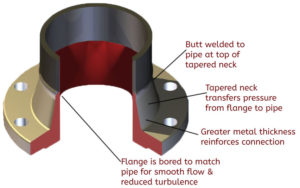 Q: I have a high pressure application with HCl at fluctuating temperatures. Can you recommend the best flange to provide a safe secure joint? A: Hands down, the weld neck flange is best for these types of hazardous, high pressure applications. Weld neck flanges are easily identified by their long … Continue reading
Q: I have a high pressure application with HCl at fluctuating temperatures. Can you recommend the best flange to provide a safe secure joint? A: Hands down, the weld neck flange is best for these types of hazardous, high pressure applications. Weld neck flanges are easily identified by their long … Continue reading
Q: What advantages does Zirconia have over Alumina? A: Usually for most high temperature or electric insulator applications where ceramics are needed, alumina ceramic fasteners are the most popular choice due to their properties and relatively affordable price compared to zirconia fasteners. However sometimes the extreme properties of zirconia fasteners … Continue reading
Q: Need help with specific needs regarding Polyimide fasteners and their high temperature capabilities A: This Italian company was developing a new client oven. They were interested in Polyimide fasteners and their high temperature capabilities. In particular they needed: Usability to 300°C Capability with metal connections Heat and electric … Continue reading
Q: Why does Zirconia cost more than Alumina? A: 1.) Raw material cost. Alumina is far more abundant, whereas Yttrium oxide which is a stabilizer for Zirconia ceramic, is a rare earth element. 2.) Shaping costs. Due to its higher density it takes approximately 10x longer to grind down … Continue reading
Posted in Advanced Ceramic Fasteners, FAQs, High Temperature Resistance, Technical Questions Tagged Alumina, Zirconia Leave a comment
Q: Polyimide / Vespel fasteners and their high temperature capabilities A: This client is developing a new oven application and was interested in Polyimide fasteners and their high temperature capabilities. In particular they needed:

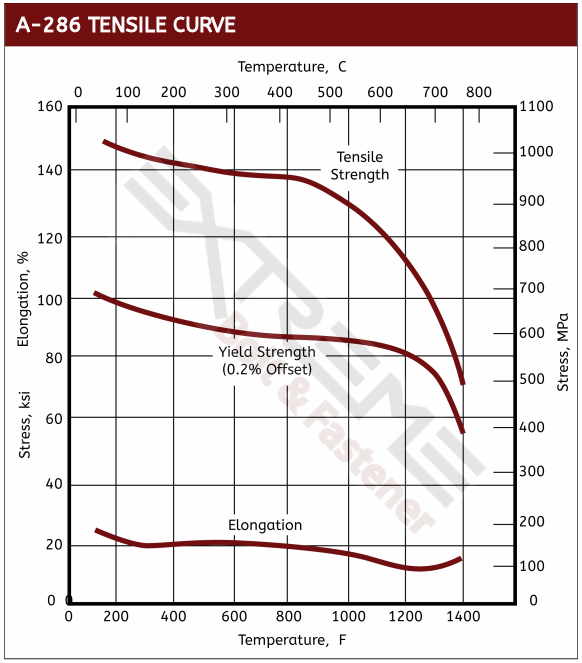 Q: I am designing an engine unit and am considering using 1.4980 stud bolts and nuts at elevated temperature. What is the maximum working temperature for stud bolts made of 1.4980 (A-286)? A: A286/Alloy 660 or 1.4980 fasteners are made of a stainless steel alloy which contains iron, nickel, and …
Q: I am designing an engine unit and am considering using 1.4980 stud bolts and nuts at elevated temperature. What is the maximum working temperature for stud bolts made of 1.4980 (A-286)? A: A286/Alloy 660 or 1.4980 fasteners are made of a stainless steel alloy which contains iron, nickel, and … 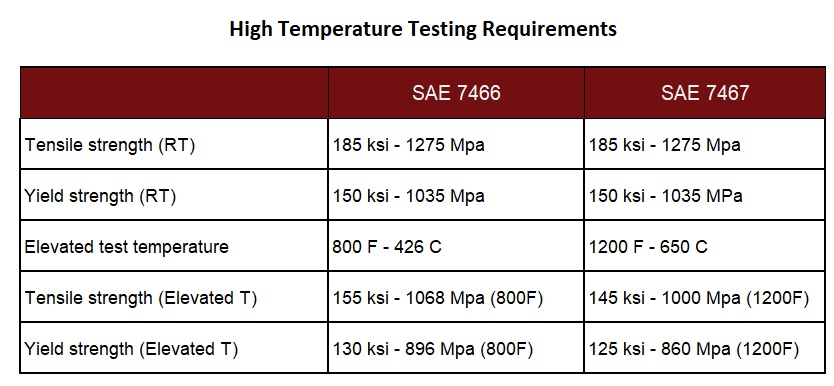 Q: What is the difference between bolting to SAE AS7466 and SAE AS7467? A: Both SAE AS7466 and SAE AS7467 describe bolts and screws made from Inconel 718 (UNS N07718) material equivalent to the European 2.4668 material norm. The main difference between these two specifications is the testing requirements. The Inconel bolt material …
Q: What is the difference between bolting to SAE AS7466 and SAE AS7467? A: Both SAE AS7466 and SAE AS7467 describe bolts and screws made from Inconel 718 (UNS N07718) material equivalent to the European 2.4668 material norm. The main difference between these two specifications is the testing requirements. The Inconel bolt material …  Q: What is the corrosion (oxidation) resistance of 1.4980 (A-286) fasteners compared to 1.4404 (A4 / 316L ) fasteners? A: A286 / 1.4980 bolts provide excellent oxidation resistance up to 1500°F (815°C). This makes 1.4980 bolts ideal for high temperature exhaust streams. In comparison, 316L / 1.4404 bolts can typically be applied up …
Q: What is the corrosion (oxidation) resistance of 1.4980 (A-286) fasteners compared to 1.4404 (A4 / 316L ) fasteners? A: A286 / 1.4980 bolts provide excellent oxidation resistance up to 1500°F (815°C). This makes 1.4980 bolts ideal for high temperature exhaust streams. In comparison, 316L / 1.4404 bolts can typically be applied up … 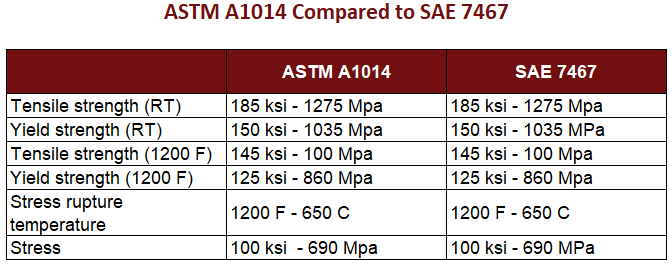 Q: What is the difference between screws made to ASTM A1014 and SAE AS7467? A: When it comes to the material characteristics there is not much difference in these specifications. Both standards describe bolts and screws made from Inconel 718 (UNS N07718) material equivalent to the European 2.4668 material norm. These both …
Q: What is the difference between screws made to ASTM A1014 and SAE AS7467? A: When it comes to the material characteristics there is not much difference in these specifications. Both standards describe bolts and screws made from Inconel 718 (UNS N07718) material equivalent to the European 2.4668 material norm. These both … 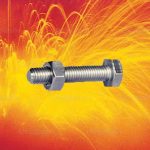 Also known as Alloy 660, A286 bolts are a cost-effective material for high temperature strength – see why in this snapshot newsletter. What specifications can you offer? A286 is available in ASTM and many AMS standards (often required for aerospace applications) including: ASTM A453, AMS 5525, AMS 5726, AMS 5732, AMS 5737, AMS 5804. What …
Also known as Alloy 660, A286 bolts are a cost-effective material for high temperature strength – see why in this snapshot newsletter. What specifications can you offer? A286 is available in ASTM and many AMS standards (often required for aerospace applications) including: ASTM A453, AMS 5525, AMS 5726, AMS 5732, AMS 5737, AMS 5804. What …  Nickel alloys are known for their corrosion resistance, but each material has its own special focus. This newsletter gives a quick summary of the top grades. Monel: Saltwater…And Strength For years, Monel bolts have been the go-to material for saltwater resistance by the military. …
Nickel alloys are known for their corrosion resistance, but each material has its own special focus. This newsletter gives a quick summary of the top grades. Monel: Saltwater…And Strength For years, Monel bolts have been the go-to material for saltwater resistance by the military. … 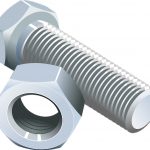 316 stainless is a familiar alloy to many of us and perhaps one of the most widely used fastening materials. Though it serves a critical function for industry, 316 can often fall short in servicing challenging high strength, temperature and corrosion resistant applications. Here is how it measures up in …
316 stainless is a familiar alloy to many of us and perhaps one of the most widely used fastening materials. Though it serves a critical function for industry, 316 can often fall short in servicing challenging high strength, temperature and corrosion resistant applications. Here is how it measures up in … 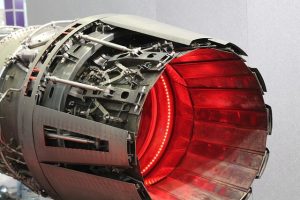 Inconel bolts are a nickel alloy fastener that are known for their use in high temperature applications that also require high strength. Many grades are also used for their excellent level of corrosion resistance in harsh chemical environments. This brief newsletter highlights the unique attributes of each Inconel bolt …
Inconel bolts are a nickel alloy fastener that are known for their use in high temperature applications that also require high strength. Many grades are also used for their excellent level of corrosion resistance in harsh chemical environments. This brief newsletter highlights the unique attributes of each Inconel bolt …  Non-magnetic fasteners service a variety of applications mainly where magnetic “interference” needs to be avoided. Cryogenic and medical applications such as MRI’s are just a few of the key places non-magnetic fasteners are needed. This newsletter highlights a few specialty metal fasteners that can service non-magnetic needs. Inconel Bolts Non-magnetic …
Non-magnetic fasteners service a variety of applications mainly where magnetic “interference” needs to be avoided. Cryogenic and medical applications such as MRI’s are just a few of the key places non-magnetic fasteners are needed. This newsletter highlights a few specialty metal fasteners that can service non-magnetic needs. Inconel Bolts Non-magnetic … 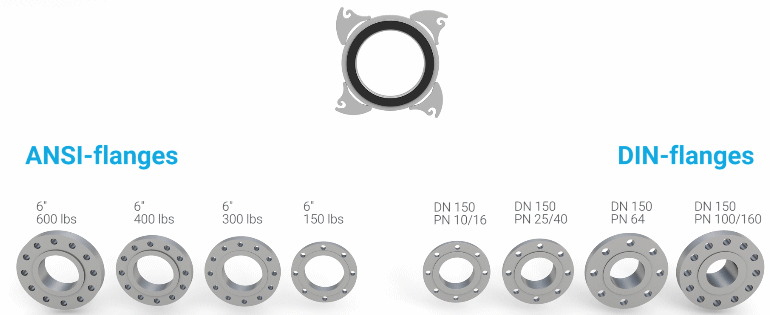 Q: What is the Vario gasket design? A: Vario is not a unique gasket at all, it is an adder to the existing JP/JG Revoseal gaskets to add in centering the gasket no matter what pressure class flange that the gasket is being mated to. This save metal costs as …
Q: What is the Vario gasket design? A: Vario is not a unique gasket at all, it is an adder to the existing JP/JG Revoseal gaskets to add in centering the gasket no matter what pressure class flange that the gasket is being mated to. This save metal costs as …  Q: I need a high temperature gasket that can provide a tight seal to a hazardous application that reaches temps of about 1200F. Do you have a product that can help me? A: Yes. An Inconel JG / JP gasket can give you high temperature resistance at these temperatures. The …
Q: I need a high temperature gasket that can provide a tight seal to a hazardous application that reaches temps of about 1200F. Do you have a product that can help me? A: Yes. An Inconel JG / JP gasket can give you high temperature resistance at these temperatures. The … 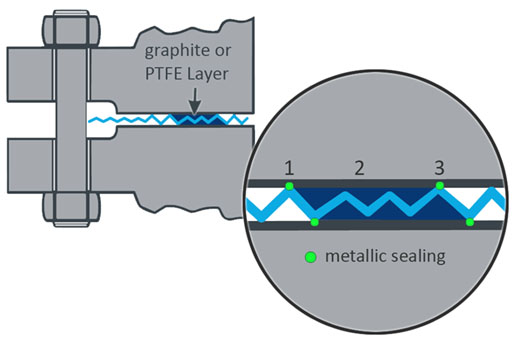 Q: I have a leaking gasket that is in a heat transfer fluid application. What do you recommend? A: For this situation you may want to try the Revolution gasket system. Due to consistent sealing pressure it will offer you a far lower leak rate than an off the shelf …
Q: I have a leaking gasket that is in a heat transfer fluid application. What do you recommend? A: For this situation you may want to try the Revolution gasket system. Due to consistent sealing pressure it will offer you a far lower leak rate than an off the shelf … 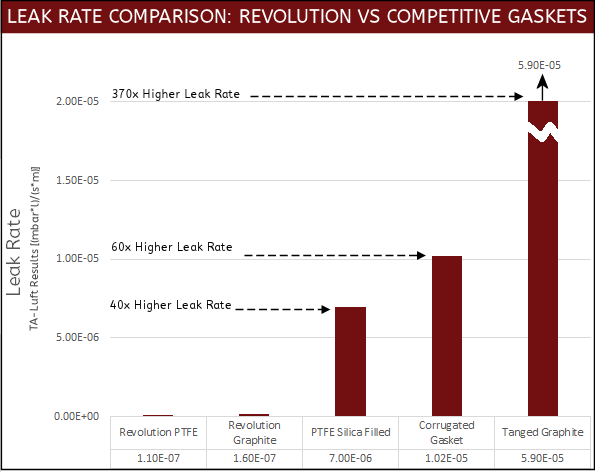 Q: I need a high temperature gasket that would be able to handle thermal cycling. Any ideas? A: The Revolution gasket is ideal for thermal cycling. The design of the gasket accommodates flange movement that can be caused by thermal cycling and vibration. The corrugated design of the Revolution gasket …
Q: I need a high temperature gasket that would be able to handle thermal cycling. Any ideas? A: The Revolution gasket is ideal for thermal cycling. The design of the gasket accommodates flange movement that can be caused by thermal cycling and vibration. The corrugated design of the Revolution gasket …  What is a refractory metal fastener? Molybdenum, tantalum, tungsten and zirconium are all refractory metals. (We are excluding titanium from this topic although it can be considered a refractory metal by certain definitions). All these refractory metal fasteners are characterized by their high-temperature melting points, but they also have other …
What is a refractory metal fastener? Molybdenum, tantalum, tungsten and zirconium are all refractory metals. (We are excluding titanium from this topic although it can be considered a refractory metal by certain definitions). All these refractory metal fasteners are characterized by their high-temperature melting points, but they also have other …  From thermal processing and furnace applications to the extreme demands of aerospace, several high temperature alloys are available each with unique traits and capabilities. This brief newsletter will outline the primary fastener materials that are commonly used for excellent high temperature and oxidation resistance. Best High Temperature Oxidation Resistant Fasteners …
From thermal processing and furnace applications to the extreme demands of aerospace, several high temperature alloys are available each with unique traits and capabilities. This brief newsletter will outline the primary fastener materials that are commonly used for excellent high temperature and oxidation resistance. Best High Temperature Oxidation Resistant Fasteners … 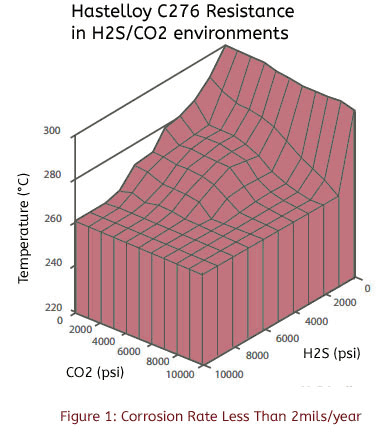 Oilfields are subjected to a diversity of corrosive elements including carbonic acids, sour gas (H2S), and fracking/stimulant acids such as hydrochloric and hydrofluoric acid. Naphthenic acids and simple organic acids are also found in crude oil extraction. In conjunction to acids, these environments contain sand and other abrasive elements which …
Oilfields are subjected to a diversity of corrosive elements including carbonic acids, sour gas (H2S), and fracking/stimulant acids such as hydrochloric and hydrofluoric acid. Naphthenic acids and simple organic acids are also found in crude oil extraction. In conjunction to acids, these environments contain sand and other abrasive elements which … 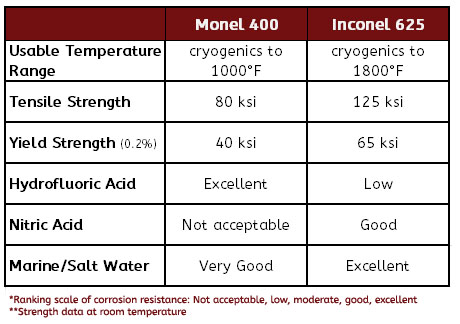 They rhyme, are both used in extreme environments, and are both nickel metal alloys, but Monel and Inconel are actually very different. But how? Let’s start with basic chemistry. Monel is a nickel-copper alloy and Inconel is a nickel-chromium alloy. So what does that mean for your extreme application? We …
They rhyme, are both used in extreme environments, and are both nickel metal alloys, but Monel and Inconel are actually very different. But how? Let’s start with basic chemistry. Monel is a nickel-copper alloy and Inconel is a nickel-chromium alloy. So what does that mean for your extreme application? We … 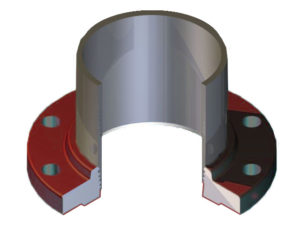 Q: When do you recommend to use a threaded flange? I need a flange that can be changed easily & frequently. A: After speaking with the customer, I found out that he has a pilot plant where he will be frequently changing parts. In this case a threaded flange is …
Q: When do you recommend to use a threaded flange? I need a flange that can be changed easily & frequently. A: After speaking with the customer, I found out that he has a pilot plant where he will be frequently changing parts. In this case a threaded flange is …